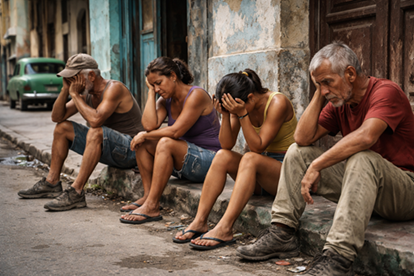
Last summer was one for the record books with the Met Office recording the hottest days in Jamaica in the summer of 2023, doctors warning people to limit their sun exposure, and government ministers warning employers in the construction field that workers cannot operate in the sun all day.
This year, while not breaking the records set last year, will also be one of our hottest yet, and as time goes on we will look back on the summer of 2022 with fondness as things continue to heat up.
Global warming is real, and it is not going anywhere any time soon. Thankfully our political and monied classes have not taken the US/UK line about this event by denying it and sticking their heads in the sand. Probably the only benefit of us having tourism as our main FX earner has been the fact that hotels, those multi-million-dollar enterprises, are sounding the alarm about the impact of global warming to their bottom lines primarily but also to the country overall.
With droughts becoming longer and occurring at times when we would historically be expecting wet weather, the country is in a prime spot to be acutely impacted by global warming. It is for this reason that the Government has sought to provide farmers and individual households with equipment for water harvesting and irrigation. This must be commended; farmers are set to feel the brunt of global warming so this move will lessen the impact.
More needs to be done though, and if the Government and Opposition really have the interest of the citizens at heart it will mean stepping on the third rail which is tourism.
It is expected that Jamaica will surpass last year’s number of tourist arrivals which was a record. Arrivals surpassed the number of people who live on the island and simple math says if there is a shrinking aquifer, but more thirsty people continue to use it, it will run dry quickly.
At some point, the hotels, by their own volition or compelled by the State, must transition from the natural water systems, meaning National Water Commission (NWC) and the like, and increase the use of desalinated water. It cannot be that the hotels and the tourism sector overall remain on the NWC tap while people literally meters away have no water. It cannot be that the people have no backup but that hotels do via desalination.
At this moment, the State is not able to utilise desalination techniques, The money is not there, but compelling resorts and hotels to use only desalinated water is something that can be done to ensure that when droughts hit, we still have water for the masses.
Another area which would assist the public would be demanding, even if it means passing legislation, that new homes have water harvesting technology. For existing homes, the State could and should offer grants allowing people to purchase and install these items which would go some way to minimising the nation’s exposure to drought conditions.
We have witnessed a steady decline in rainfall over the last 20 years; we have borne the heat over the same period and things are only going to go downhill faster. Serious choices must be made. Do we continue to go whole hog with tourism in its current form; do we continue construction practices that are not compatible with the changing environment; or do we insist that the citizens come first?
If we are honest, the globe will pass the 1.5 degrees centigrade limit set by world leaders. It will get hotter, and we will experience “interesting” weather patterns as a result. It is not our fault, but we will bear the brunt.
With that being the case, we need to act. More trees, more green areas, less asphalt, all these things need to be done if we are to stay ahead of the curve. That we are not doing this is scary, especially when we know what is coming down the line.
We must demand that green spaces are provided, that water harvesting becomes a norm and that hotels wean themselves off our water supply and practice desalination full-time. We cannot afford to go through this every year. It negatively impacts our productivity levels.
These are the hard decisions states must make as we witness the impact of global warming. Patching up a gaping wound, which is what the water drum drive is, is not going to solve the problem. With a minister who seems to understand the urgency with which we need to act to confront global warming, one can only hope that the initiatives mentioned will implemented. If not, we may as well get ready to be roasted,



